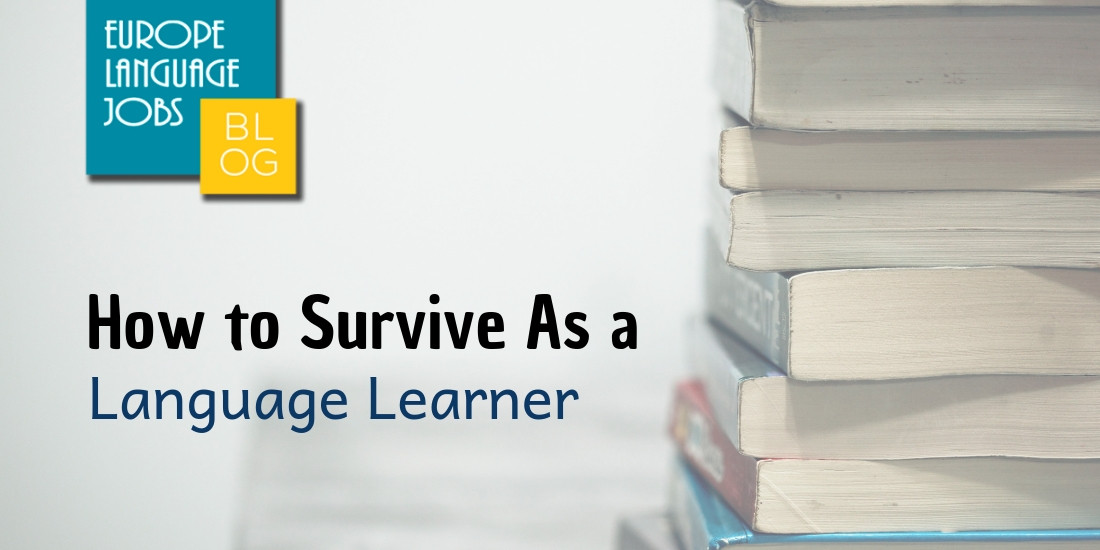Life as a language learner can be tough, with the quest for fluency being a seemingly impossible goal. Across Europe, language learning is on the up, with more and more people looking to break free from the shackles of monolingualism.
There are the obvious, everyday advantages to speaking a foreign language, such as impressing your friends, turning around a date that´s going badly and one of the strongest senses of pride and achievement that you can have.
Learning a second language also helps boost your employability. In a world that is becoming more globalised every year, it is important that you have communication skills. People are moving between countries more than ever and languages are an essential skill to have if you’re hoping to start a life in a new country. According to studies, multilingual's earn 8% more than their monolingual counterparts.
There are many brain benefits of learning a new language. According to science, it increases the amount of grey matter in your brain – improving your memory and helping to fend off dementia.
It also helps you become more attractive, with 71% of Americans saying that speaking more than one language makes you more attractive.
Choosing the best language to learn
People have differing motivations for learning a language, but you should be aware of which language/s are the most employable. The more languages you speak, the wider range of opportunities you have to choose from – but there are always opportunities, no matter what language you speak. You should also know what you want to achieve with your language skills and (equally as important) where your languages are employable.
English is mandatory for the majority of positions in most European cities, nowadays. And if you speak German, many companies are looking for you right now! Recently, Nordic languages are highly demanded by companies. This is mainly because Nordic countries tend to have relatively small populations along with the fact that learning Nordic languages isn’t very popular in the rest of the world means that Nordic speakers are hard to find.
The Nordic languages tend to be easy for English speakers to learn, making them a great option when deciding on which language you should learn.
Free online language learning resources
1) Free Apps
Even the most beginner of language learners will have probably looked into the idea of learning from an app. This is probably the most popular method of language learning as well as learning online. Apps include:
- Mondly
- Duolingo
Websites:
- Preply
Dating apps
This only really works if you are in the country you that you are trying to learn the language of. Many languages have a phrase which says that the quickest way to learn a language is to acquire a partner who speaks it. Having someone you can spend time chatting to in your target language is a great way to pick up new vocabulary and you’ll want to impress – so it’s also a great way of perfecting your spelling and grammar.
We'll let you find your own - just don't tell your other half.
2) Online language exchange
The whole idea is that two native (or high level) speakers exchange their language skills with someone whose language they want to learn, and who wants to learn theirs in return. This is usually free, and is a great way to improve your language skills using a native speaker.
Top sites include:
- HelloTalk
- Tantem
- My Language Exchange
- Conversation Exchange
3) Audiobooks and Podcasts
Listening to audiobooks and podcasts is a great way of learning a language on the move – you can listen to them while commuting, at work or even at the gym. You can find topics that interest you, as well as stories and the news.
4) Pretend you already know the language
It may sound strange, but one of the best ways to learn a language fast is to pretend you already know it by assuming the life of a native speaker.
What does this involve?
- Changing the language on your phone
- Changing the languages on your social media accounts
- Joining Facebook groups for that language
- Watch Netflix in your target language
- Listen to music and the radio in your target language
- Follow accounts in your target language on social media
By getting into the culture of the language, the words begin to enter your vocabulary almost without you realising.
5) Get into a routine
The best way to perfect a language is to have constant practice.
At first, people tend to be very highly motivated and so they spend every waking minute learning their target language, and then with time their effort fades, so they dedicate less and less time to it.
It’s therefore important to dedicate a small amount of time every day to learning a new language. Setting a reminder on your phone for a 30-minute slot every day is a great way to incorporate learning into your daily routine.
For the most avid of language learners, 30 minutes will not be enough, but their hectic schedule doesn’t allow them to dedicate much more time to it.
It’s therefore important to fit your language learning into your routine where possible to save time. Using essay writing online to save time, listening to podcasts in your target language, changing your phone’s language are great ways to fit this into your routine without using up precious time.
Finding a job with your language skills
Speaking more than one language can boost your employability and will open many doors in your career. International work experience is highly sought after these days by employers, who recognise the unique skill set that you gain working abroad. With proper language skills, you can also have a profitable side hustle by teaching English online and helping students prepare for your language tests.
Spending time working in another country helps you to:
- Become more adaptable
- Find different ways of doing things
- Bolster your CV
- Become more independent
One of the main benefits of working abroad is the self-development that it brings you, as you are outside of your comfort zone. It also boosts your confidence, giving you more of a drive to do things that before you would have considered too daunting. Finding out where your language is most demanded is a great way to start looking for opportunities.
We live in an age where resources we could never have dreamed of are the press of a button away. Learning a language can be one of the most rewarding experiences that life has to offer – the benefits are endless.
About the Author:
Emily Watts is a backpacking enthusiast. She managed to backpack across Australia in a few short weeks. She came back to her hometown of Albany, where she shares her experiences with the locals, on top of helping out at the local homeless shelter. Emily has her own website ElizabethanAuthors, where she writes about authors and their works.










Kseniia Duginova1y ago
The more languages you speak the better! According to studies person can easily speak up to 6 languages fluently.
The more languages you speak the better! According to studies person can easily speak up to 6 languages fluently.